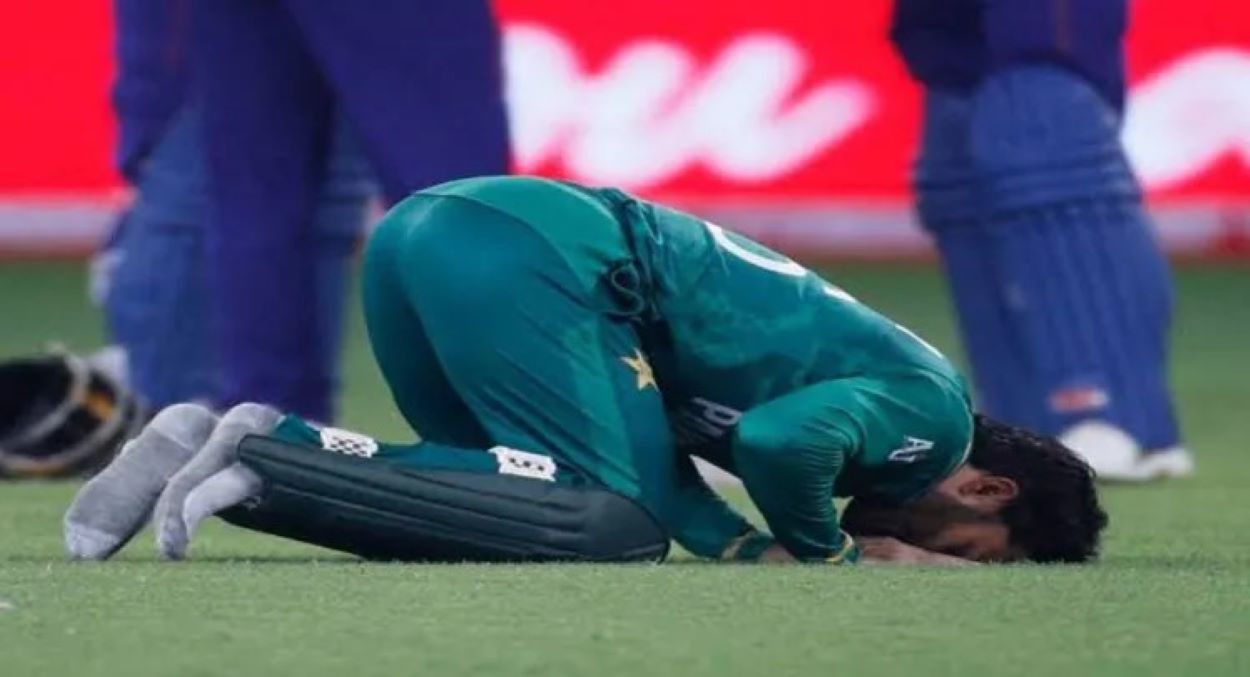Indian lawyer Vineet Jindal filed a complaint with the International Cricket Council (ICC) against Pakistani wicketkeeper and batter Muhammad Rizwan. The grievance centred around Rizwan’s offering Namaz (prayer) on the field, a practice he often undertakes wherever possible, and his subsequent public solidarity with Gaza.
Rizwan’s Public Display of Faith and Politics
The incident occurred during a pause in the game between Pakistan and the Netherlands, where Rizwan was observed performing his religious ritual in the middle of Hyderabad’s Rajiv Gandhi International Cricket Stadium.
This wasn’t the only instance drawing attention; Rizwan’s dedication of his game-winning century against Sri Lanka to Gaza had previously sparked significant media attention in India. The ICC, however, refrained from reacting, citing the player’s right to express his views off-field.
Jindal’s complaint emphasized what he perceived as a violation of the “spirit of sports.” He wrote, “The act of Muhammad Rizwan when he read namaz on the cricket field amid many Indians is symbolic of the intentional depiction of his religion, which stands against the spirit of the sports.” Jindal argued that Rizwan’s actions, particularly offering prayers during a game break. At the same time, teammates awaited refreshments, and his political statement in the post-match conference compromised the neutral essence of sports.
Continued Legal Scrutiny of Pakistani Cricket Figures
It’s noteworthy that this isn’t Vineet Jindal’s first foray into legal activism targeting figures from Pakistan’s cricketing world. He previously lodged a complaint against presenter Zainab Abbas concerning supposed “anti-Hindu” remarks, leading to her departure from India and a subsequent public apology. This pattern underscores an ongoing trend of legal challenges intermingling with international cricket, reflecting broader geopolitical undercurrents.






